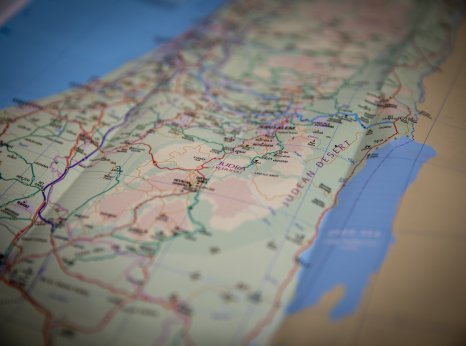Israel and the Occupied Palestinian Territory: Halt The Eviction Of Saleh Diab And His Family

Since Israel’s establishment in 1948, successive governments have designed laws, policies and practices to ensure the continued fragmentation of the Palestinian population and the privileging of Jewish-Israelis at the expense of Palestinians. These measures have sought to maintain an institutionalised system of domination and oppression, amounting to apartheid. Since Israel occupied and illegally annexed East Jerusalem in 1967, it has adopted a series of measures to reduce the number of Palestinians in the city and create and expand illegal settlements, including through land confiscation, residency revocation and forced evictions. Under the 1970 Legal and Administrative Matters law, for instance, Jewish-Israelis are exclusively entitled to pursue claims over land and property they had allegedly owned before 1948. No such right is granted to Palestinian refugees and internally displaced people expelled from their land and homes in the same period. Saleh Diab, for example, is prohibited from returning to the home in Jaffa’s al-Ajami neighborhood from which his family had been expelled in 1948.
Saleh Diab’s extended family of 23 has been embroiled in a legal battle against eviction at the hands of settlers for decades. Threats against them have escalated since 2009. The settler group Nahalat Shimon International is using the 1970 Legal and Administrative Matters Law as the legal basis to demand their expulsion.
Since 2009, Saleh Diab has helped organize peaceful protests in Sheikh Jarrah, attracting Israeli and international solidarity activists. These protests received widespread international attention in April 2021 when Saleh Diab and other families in Shiekh Jarrah mobilized Palestinians in Jerusalem and other areas to take to the streets and raise their voice to save Sheikh Jarrah. Then, Amnesty International documented arbitrary arrests of peaceful demonstrators, the use of excessive force, use of sound and stun grenades as well as the spraying of maloderant (skunk) water cannons at demonstrators and homes in Sheikh Jarrah. In solidarity with Sheikh Jarrah residents, thousands of Palestinians across Israel and the Occupied Palestinian Territory (OPT) staged protests to express opposition to the broader issues of displacement, segregation and fragmentation that they collectively endure. Israeli forces responded with disproportionate and often lethal force, resulting in widespread injuries, arrests and detentions.
Several Palestinian families in Sheikh Jarrah, such as al-Daoudi, Dajani, Hammad, al-Kurd, Qasim, Skafi and Jaouni families, have also received eviction orders but managed to temporarily halt them through Supreme Court rulings. These rulings acknowledged their status as protected tenants pending land ownership resolution under the reactivated Settlement of Land Title (SOLT) process. Saleh Diab’s case was treated differently; the courts argued his family was not among those listed by Jordan in the 1950s, disqualifying them from the same protection.
Beyond litigation, Saleh Diab has also engaged in nonviolent resistance, serving as a central figure in weekly demonstrations opposing settler-led evictions in Sheikh Jarrah from 2009 until they were halted in October 2023 due to the war in Gaza. Saleh Diab told Amnesty International that Israeli settlers continue to violently harass him and his family. Saleh Diab has been the target of police brutality, state-backed settler violence and relentless surveillance, yet his campaigning to defend his home and his neighbourhood never wavered.